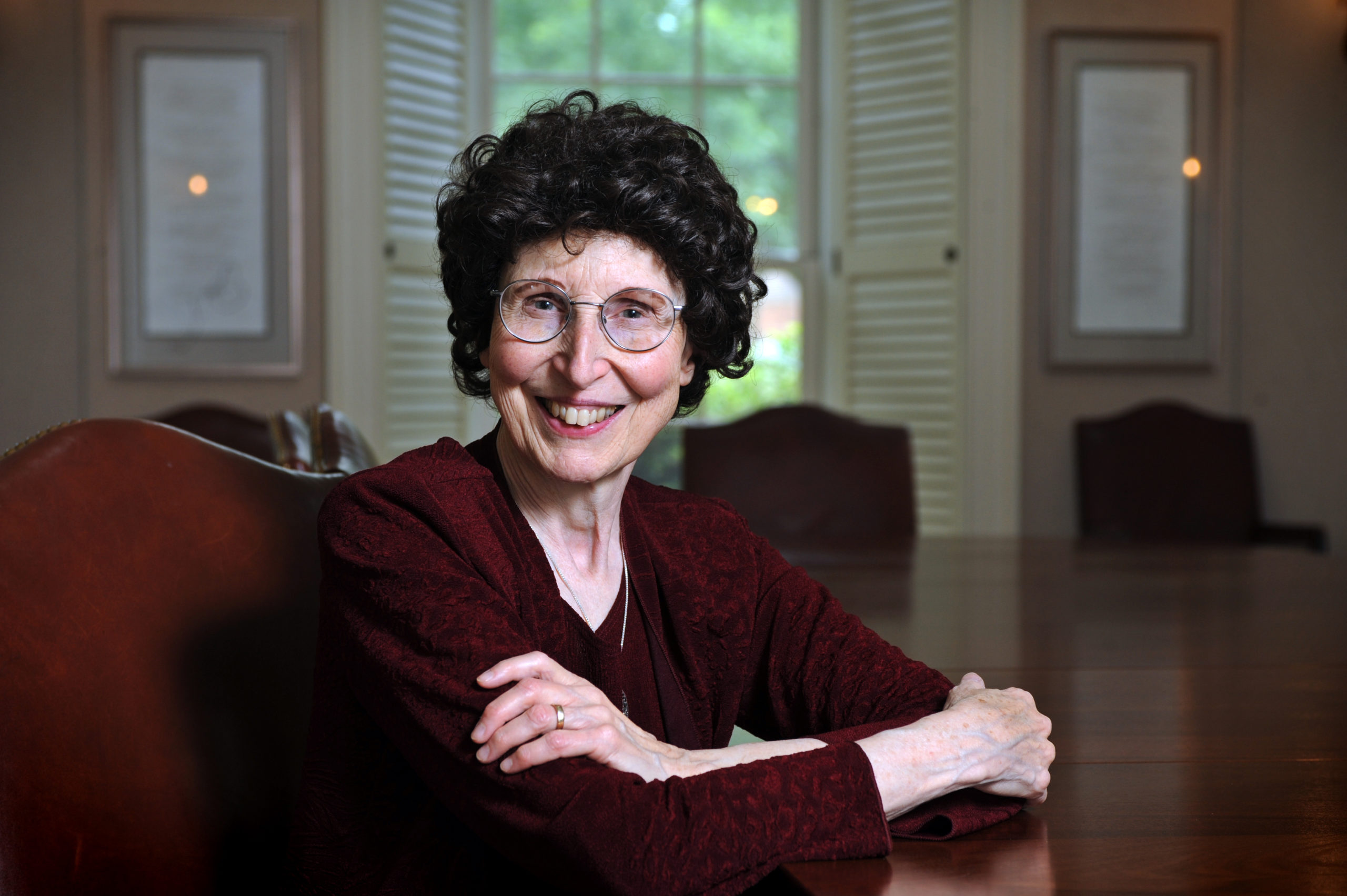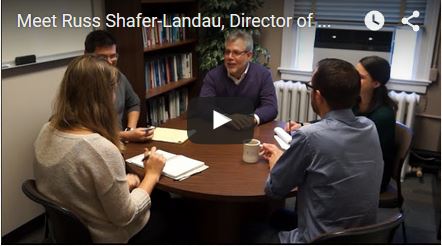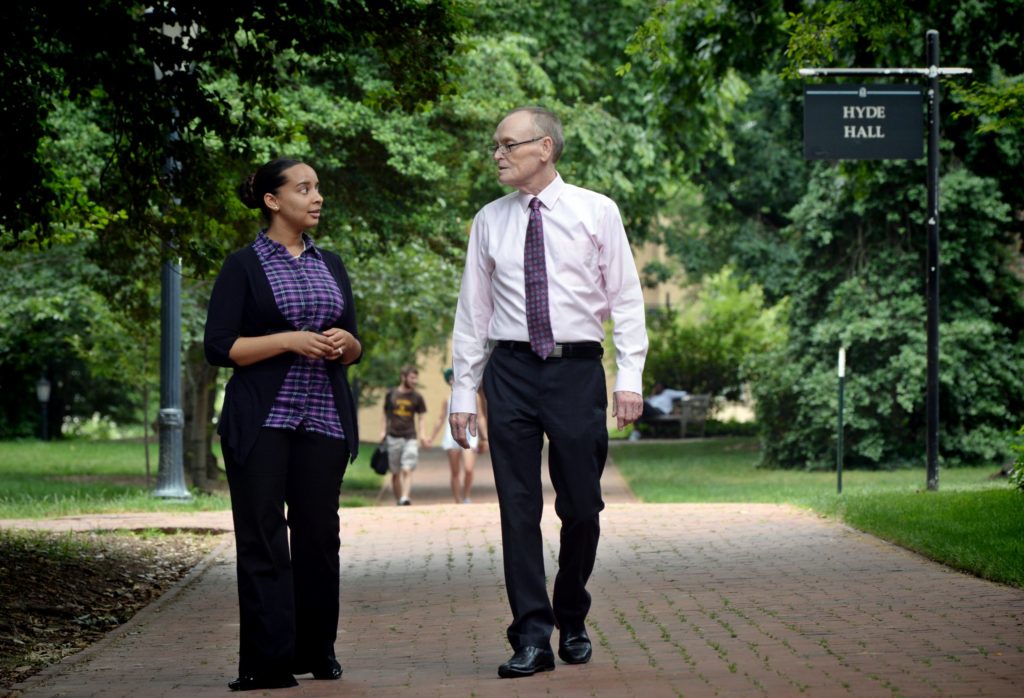
For more than four decades, Joy Kasson has been building bridges in the name of education.
Her field of expertise – American Studies – has been a way for her to connect visual and performing arts to literature and history.
She has worked with schools across the nation to connect elementary and secondary educators to university-level resources. Through travel, committee appointments and collaborations with other universities, Kasson has connected her students to opportunity.
As the first Andrew W. Mellon Distinguished Scholar at Carolina, she will connect performing arts to Carolina’s classrooms.
Kasson has a unique ability “to remind us of our obligations to the least among us, and to gently, yet firmly, prod us to be our best selves,” said Adam Versenyi, Milly S. Barranger Distinguished Term Professor of Dramatic Art.
It’s this venerable career of connections that led the University to name Kasson the 2012 recipient of the prestigious Thomas Jefferson Award. Chancellor Holden Thorp presented the award at the Sept. 7 Faculty Council meeting.
Jeffersonian ideals
The Thomas Jefferson Award, one of the highest distinctions the University can bestow on a faculty member, honors broad service to the University and an embodiment of Jefferson’s ideals.
One Jeffersonian ideal with which Kasson said she feels most kinship is his view of public education.
“Thomas Jefferson had a vision for public education at the very beginning of the American republic,” Kasson said. “His vision was that the state should support education from the earliest years all the way through university for those of ability, regardless of economic circumstances.”
For decades, Kasson has engaged public school teachers, working to bridge the gap between higher education and elementary and secondary education. She has been a consultant for the N.C. School of Science and Mathematics and traveled all over the nation to school districts as part of the National Humanities Faculty and through the National Humanities Center.
“The University’s mission is about public education, and I think our mission extends to working with teachers at different levels who are serious about their subjects and want to be the most informed teachers in the most exciting way they can,” she said.
The rise of American studies
This year marks the 50th anniversary of the Jefferson award, first given in 1962. In five decades, Kasson is only the sixth woman to receive it.
One nomination noted that with her doctorate in American studies, Kasson joined a small but growing interdisciplinary field, “so that like Thomas Jefferson, Joy is a founding figure in her field.”
Kasson grew up in Highland Park, Ill., and attended Radcliffe College for her undergraduate studies. She intended to go into the sciences, but found herself pulled toward a small department called American history and literature.
After Radcliffe, Kasson spent a year in Ireland on a Fulbright fellowship before continuing her studies at Yale University where she met her husband, John, who was in the same program.
In 1971, both were offered faculty positions at Carolina, where they’ve logged more than 80 years between them.
Kasson held Carolina’s first full faculty appointment in American studies, well positioned to help shape the growing program.
Carolina’s Department of American Studies, part of the College of Arts and Sciences, was then a curriculum. During Kasson’s tenure it evolved to full departmental status and embraced Southern studies, folklore, American Indian studies, international American studies and the digital humanities.
Creation of the Lehman Brady Visiting Joint Chair Professor in Documentary Studies and American Studies at Duke and UNC has been a chance for the department to collaborate with the dark-blue school nine miles down the road.
“Sports rivalries are fine,” Kasson said, “but it’s really remarkable that we have this other major university so close where we can take advantage of opportunities for collaboration.”
Versenyi credited Kasson’s commitment to academic excellence: “Joy’s leadership of American studies has created innovative learning models such as a joint class on race relations enrolling students from UNC, Duke and NCCU and taught by Timothy Tyson. She helped diversify the curriculum by developing a strong program in Native American studies, and is in the process of raising the academic bar for the discipline by establishing a Ph.D. in American studies here at UNC.”
Making connections
Beyond Kasson’s love of the subject is her true love of teaching.
“Academically, I connect literature, history and art, and I think teaching is all about facilitation and connection,” Kasson said. “I love American studies because it’s a field that attracts students with a broader vision and who love a lot of things.”
In her time at Carolina, Kasson has won a number of teaching awards, including the Bowman and Gordon Gray Chair for Distinguished Teaching, the Tanner Award for Distinguished Teaching, the Max Chapman Family Fellowship and the Johnston Award for Excellence in Teaching. She has served on the committee for Burch Fellows and recently spent a semester in London for Honors Carolina Study Abroad.
In her role as Andrew W. Mellon Distinguished Scholar, Kasson will have a guiding hand in Arts@TheCore, a program to strengthen the relationship between the performing arts and academics. Her charge is to connect Carolina Performing Arts programming with the current research and academic interests of Carolina’s faculty.
“I’ll be working with faculty all across UNC, thinking of ways the performing arts opportunities we have here – which are all so splendid – can be brought even closer to the classroom,” she said.
The appointment is right up her alley, a part of the wider service to Carolina that the Jefferson Award embodies.
“Our goal is to make people better, more thoughtful observers and analysts of the world they live in,” she said. “This makes them better citizens. I am committed to that vision. I have hope in that.”
[ Story by Courtney Mitchell, University Gazette ]


